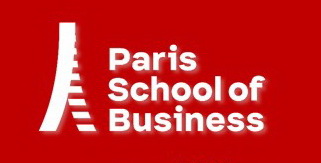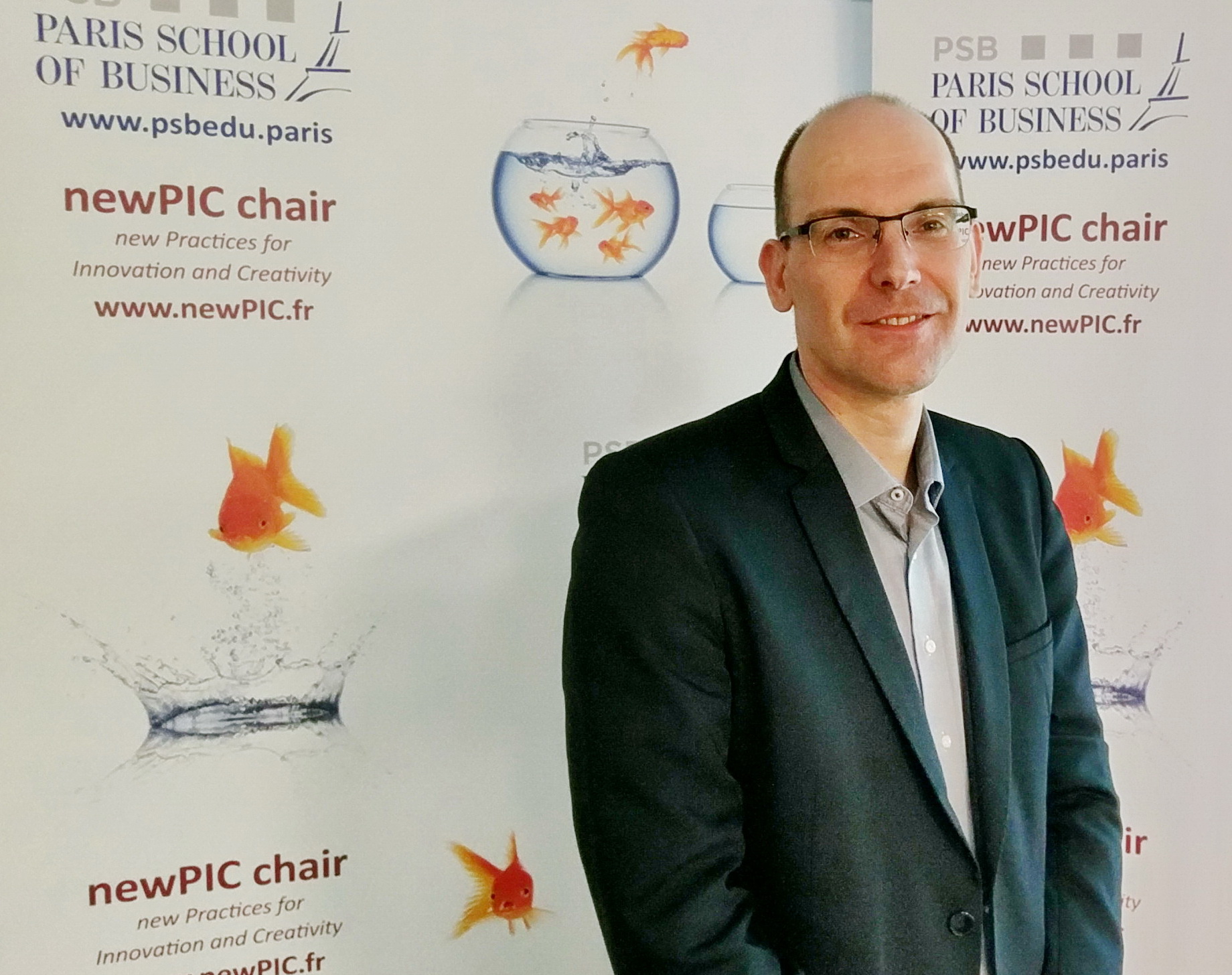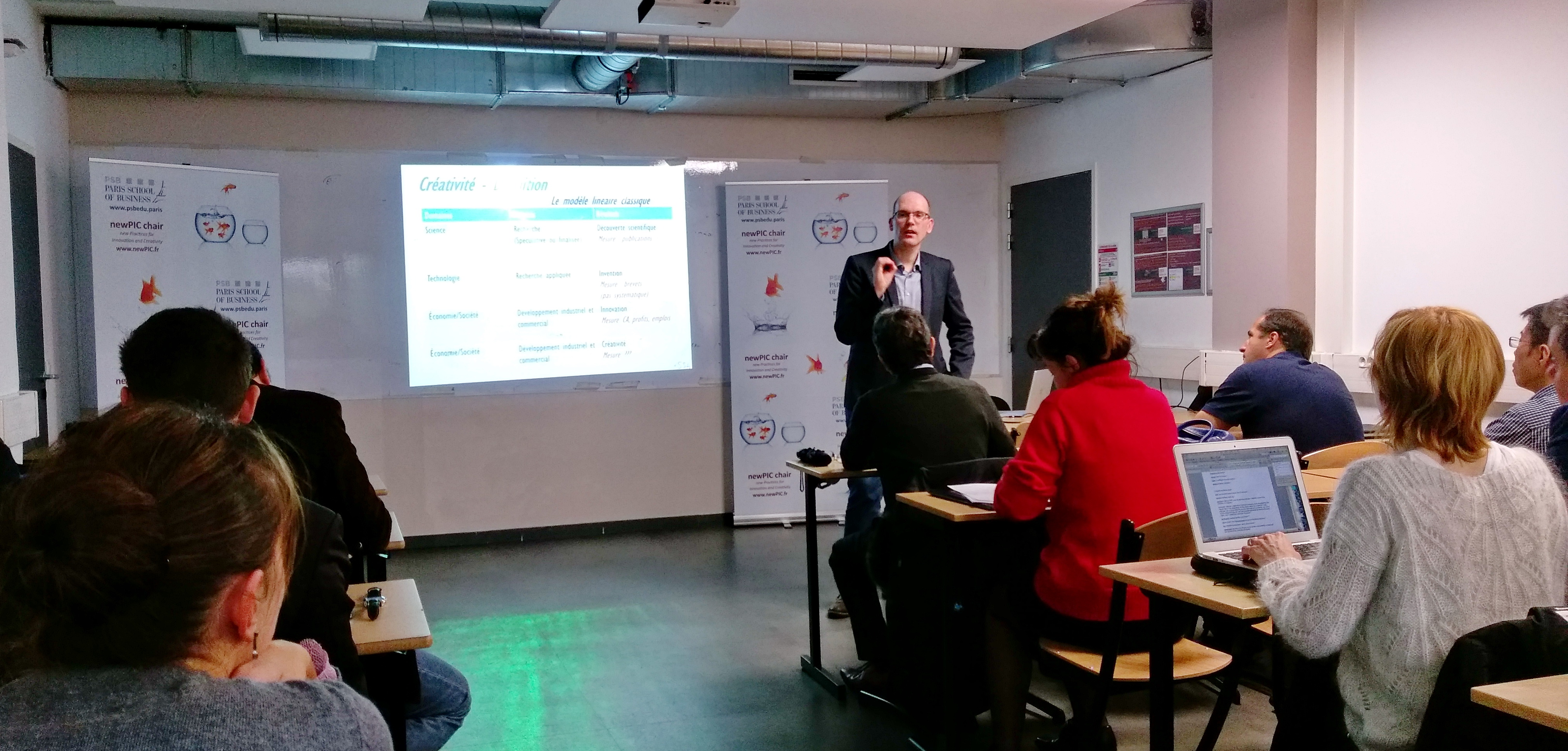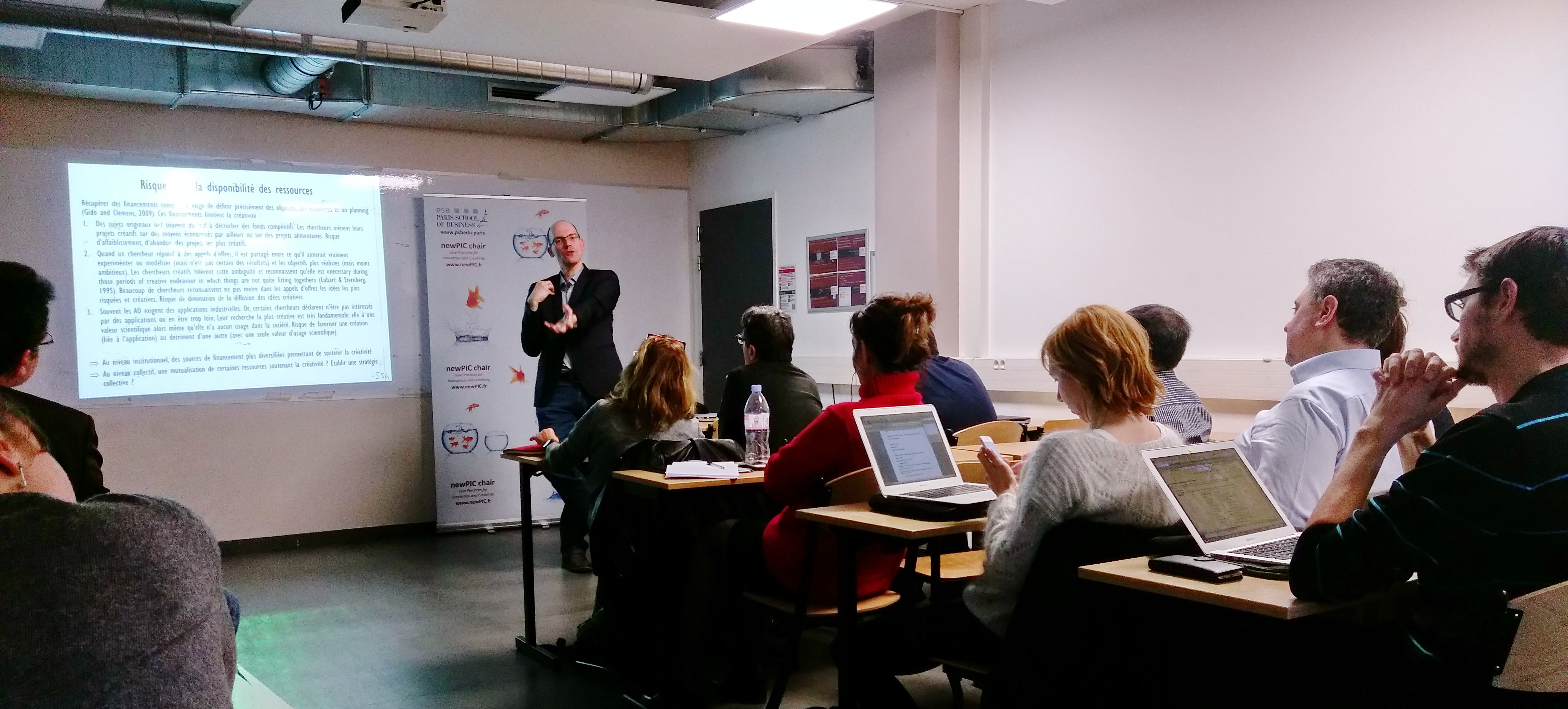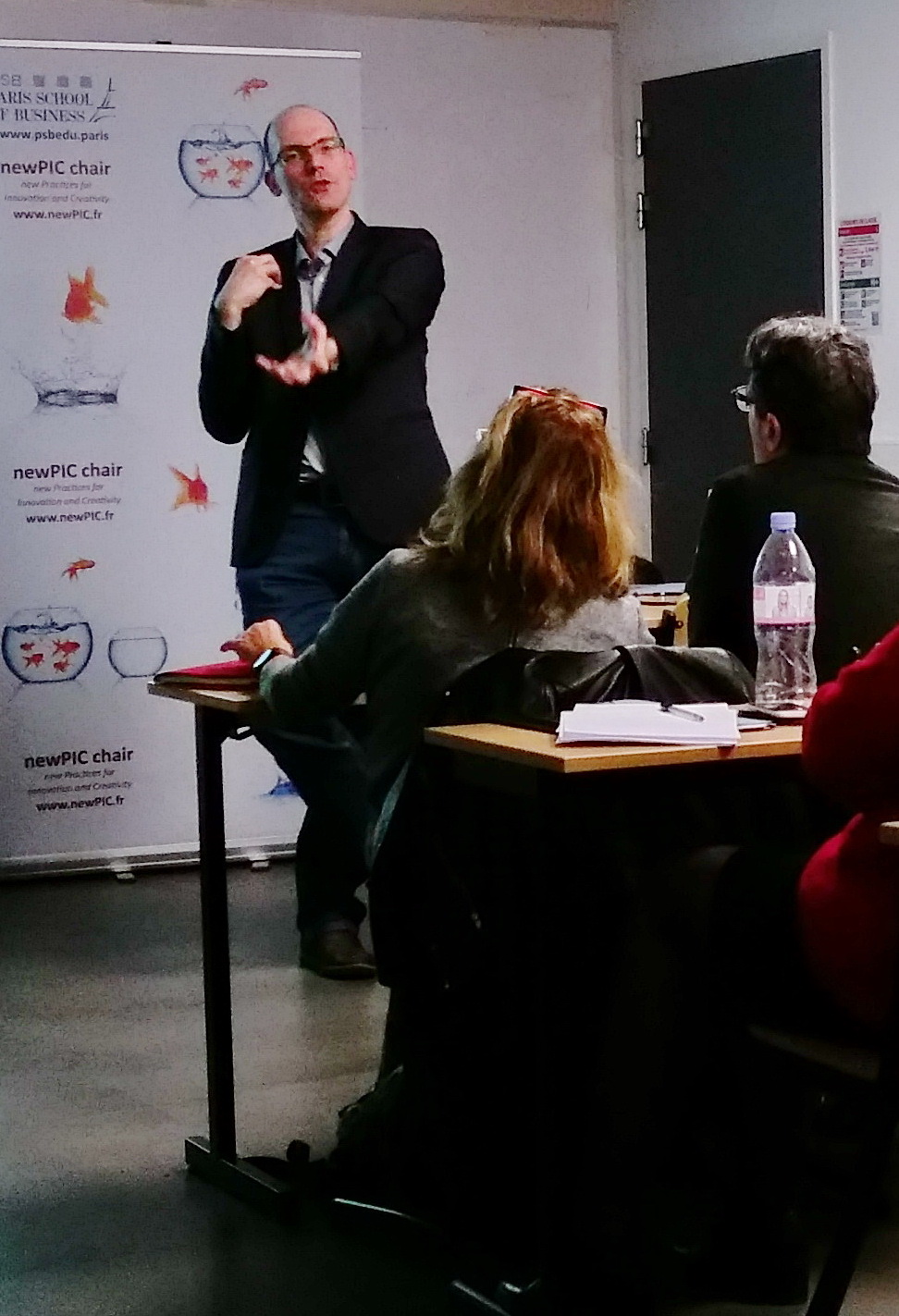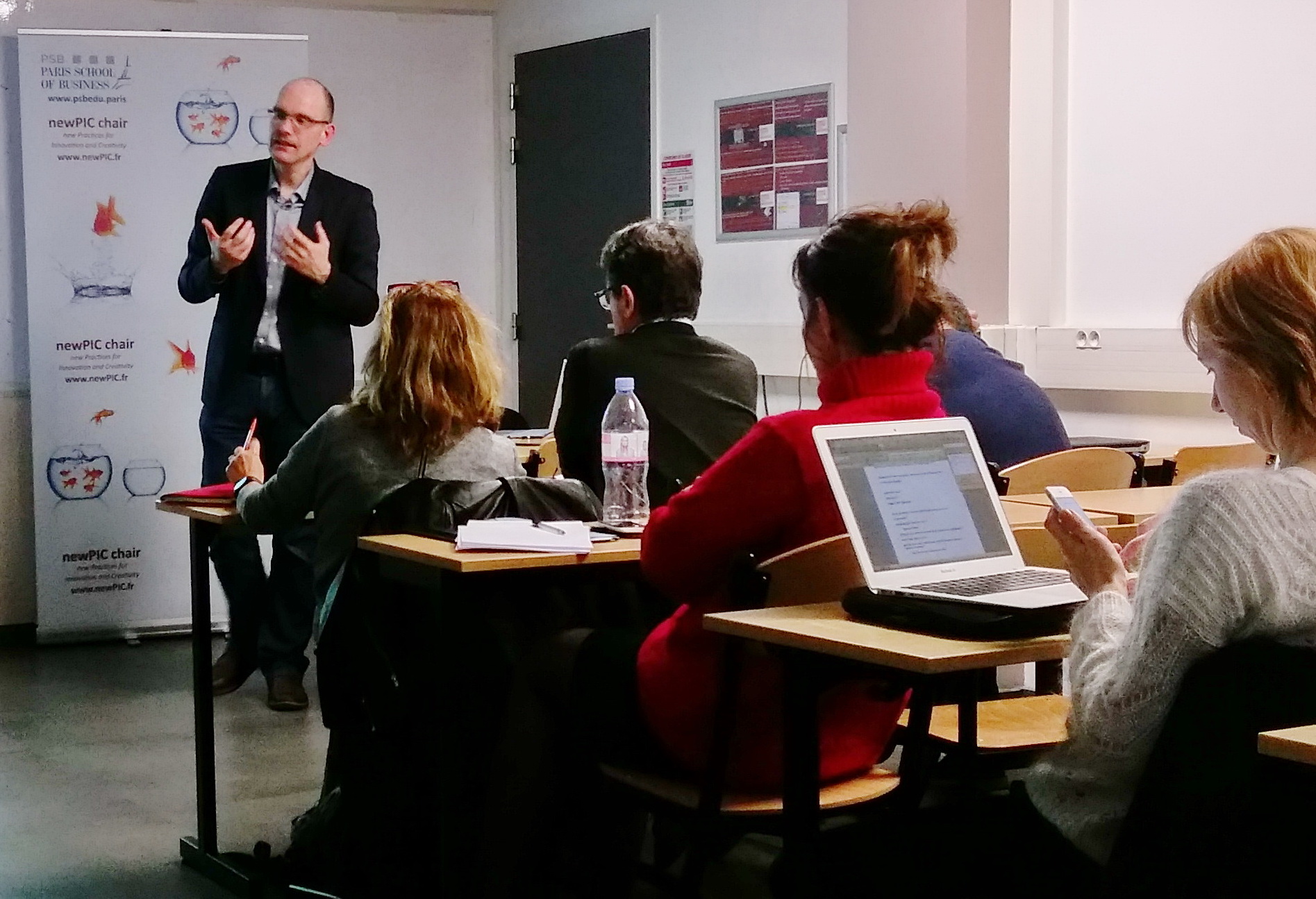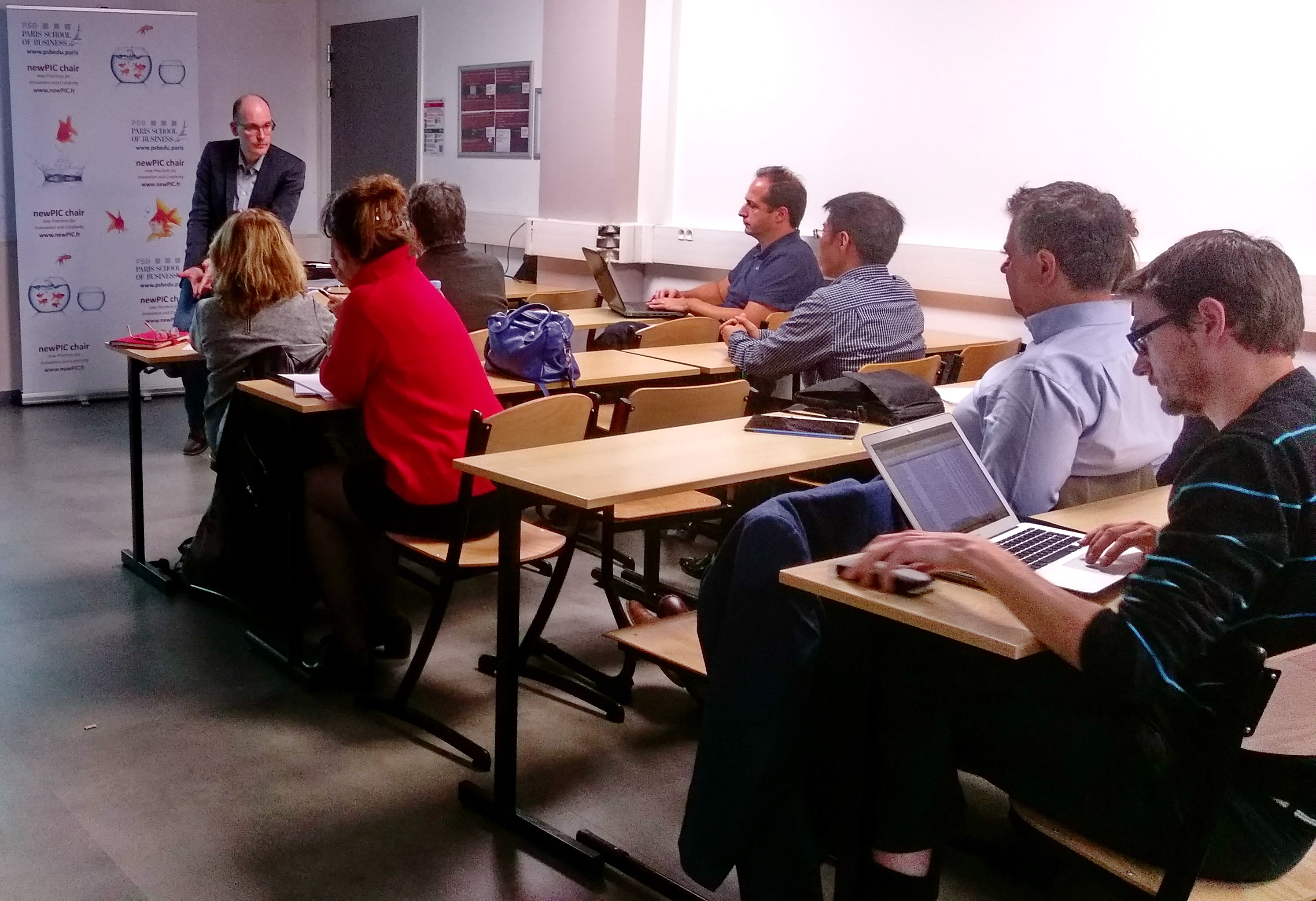
The seminar develops on the research project "C4-Core Creativity and Competition in Chemistry" financially supported by the University of Strasbourg
Institute for Advanced Studies (ASIAS), and by the AGIR-PEPS call for applications.
- Keywords: Individual creativity, Collaboration styles, Cognitive distance, Research productivity
- JEL Codes: I23, O31, O32
Creativity as a lever for growth
report by Xavier Menaud (translation DwV)
Thierry Burger has organized his presentation with two parts: a conceptuatlization of creativity, and the description of two case studies.
He gave his presentation in front of 20+ faculties coming from PSB and other Paris-based research centers. The seminar has focused on the role played
by individual creativity in shaping collaboration styles and its impact on research productivity.
To operationalize creativity, two contrasting visions of collaboration styles are investigated: the 'freak' collaboration style, defined according to
a popular characterization of creative individuals, while a monolithic collaboration style pictures the converse style.
The discussion focuses on the relationship between collaboration styles and research productivity (measured here with the number of publications) by
estimating ta Tobit model. Explanatory variables include preferences in collaboration, an assessment of cognitive distance, reasons for collaborating,
and circumstances where collaboration initiated. Many results of this research are in line with extant investigations on collaboration and creative societies,
while the results on cognitive distance and the circumstances for collaboration (e.g. the ways for meeting collaborators) show -previously
unappraised- (positive) impacts on research productivity.
Thierry Burger stresses that any human activity may be characterized as 'creative': the concept associates with "something new that makes sense".
He observes that the economic and political context has been considering creativity as a source of growth since the beginning of the 2000s. He stresses that
creative firms manifest a greater resilience against the economic crisis. He points out that economists try to understand the impacts of creativity while sociologists
try to understand the sources of creativity, and management science scholars focus on transforming creativity into value.
A representant of management science himself, Thierry Burger inquires the value of creativity in the scientific world.
He exposes results of a research project developed in research labs specialized in chemistry. He points out that the production of research articles is
impacted by the author's age, status and function in the academic system. Scholars acknowledged as "the most creative" by their peers are the ones who also have the most
important volume of publications, and the largest volume of collaborations. He also points out that technicians play a key role in serving the researchers and
their projects with their own ingeniosity.
Thierry Burger's conclusion show that scholars in chemistry cannot manifest 'unrestrained' creativity in their projects and publications. They have to
make sure that their results are appropriable by the research community and therefore need to organize a step-by-step diffusion process. We confront here a very specific
issue because creativity has to operate under constraint.

La créativité comme ressort de la croissance
compte-rendu par Xavier Menaud
Devant un public composé de plus d’une vingtaine de chercheurs de laboratoires différents Thierry Burger a proposé une présentation construite
en deux parties : une conceptualisation de la créativité et l’exposé de deux études empiriques.
Thierry Burger souligne que n’importe quelle activité humaine peut être créative : il s’agit de quelque chose de nouveau, qui fait sens.
Depuis les années 2000, il observe que le contexte économique et politique souligne que la créativité est source de croissance. Il souligne aussi que les
entreprises créatives font preuve de résilience et résistent mieux à la crise. Thierry Burger note que si les économistes souhaitent connaître les effets de
la créativité, que les sociologues cherchent le pourquoi de la créativité, les chercheurs en sciences de gestion s’intéressent quant à eux à savoir
comment la transformer en valeur.
En se positionnant dans une approche de gestion, Thierry Burger se demande comment la créativité crée dans la valeur dans le monde scientifique.
Il présente ainsi les résultats d’une étude menée dans laboratoire composé de chimistes. Il met en lumière que la production d’articles scientifiques est
impactée par de nombreux facteurs tels que l’âge ou la fonction du publiant. Les chercheurs perçus par leurs pairs comme étant les plus créatifs du laboratoire
sont ceux qui sont les plus productifs et qui multiplient les collaborations. Les techniciens ont également un rôle clé en mettant leur ingéniosité au service
du chercheur.
Ces conclusions soulignent que le chercheur en chimie ne doit pas faire preuve d’une créativité débridée. S’il souhaite l’être, il faut que son
travail évolue étape par étape pour que celui soit appropriable par la communauté. On retrouve ainsi la question qui pose la créativité sous contrainte
dans un système organisé.

